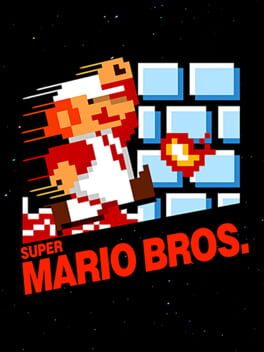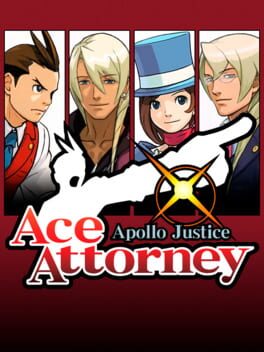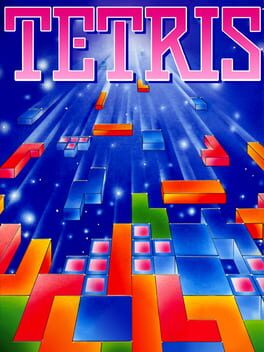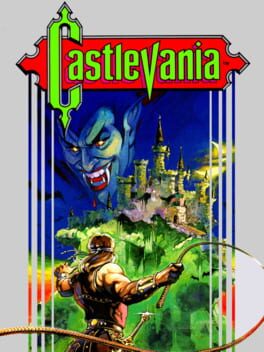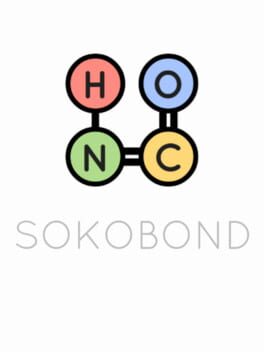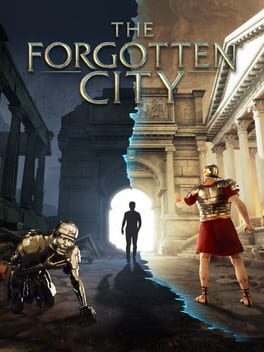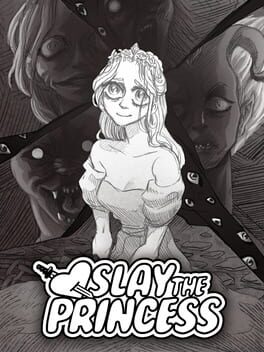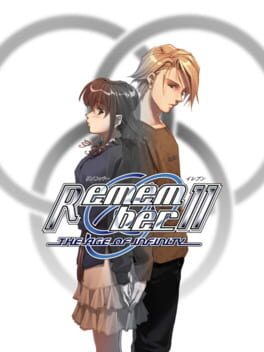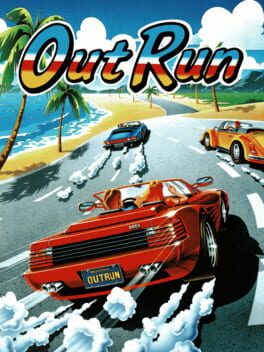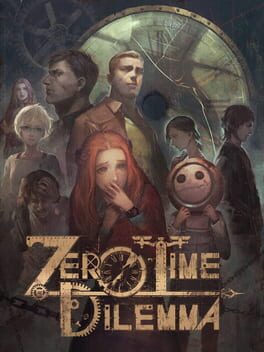Swiggle
1985
if you think this game “plays weird” and don’t get the hype i beg you to play 5 other NES platformers then come back, relax, and feel the lushness of the first true strand type game.
super mario bros is not the primordially simple jumping game it is often introduced as. platformers had ages to mature in the hypercompetitive arena of the arcade throughout the 70’s and early 80’s. aside from its understatedly elegant aesthetic, the ambition in SMB is in the elevation of movement from merely a mode of traversal to a gymnastic, expressive activity.
megaman, simon belmont, and ryu hayabusa are all transparently simple state machines— the amount of possible actions they can take is finite and countable. super mario bros did not invent momentum in platforming, nor was it the first to leverage the additional complications that a more involved system of movement entails. the friction between the player avatar and the ground. the acceleration from a dead stop to a full run. the short moment after taking your finger off the jump button before the character truly starts to fall. all the little intricacies and details compound to make mario a much more expressive vessel for a player to inhabit. what sets SMB apart is that the movement is honed to the extent it becomes even more natural than the comparatively simple systems of the above games.
mario’s body doesn’t literally move like the human form does, but negotiating the balance of a jump in mid-air, trying to establish steady footing on unhelpful terrain, and wheelin and dealing with newton’s first law in general is central to the human experience. in super mario bros, nintendo squarely refocuses the platformer from a cabaret of obstacles to a celebration of acrobatic motivity
and so, it became the bedrock upon which their castle was built
super mario bros is not the primordially simple jumping game it is often introduced as. platformers had ages to mature in the hypercompetitive arena of the arcade throughout the 70’s and early 80’s. aside from its understatedly elegant aesthetic, the ambition in SMB is in the elevation of movement from merely a mode of traversal to a gymnastic, expressive activity.
megaman, simon belmont, and ryu hayabusa are all transparently simple state machines— the amount of possible actions they can take is finite and countable. super mario bros did not invent momentum in platforming, nor was it the first to leverage the additional complications that a more involved system of movement entails. the friction between the player avatar and the ground. the acceleration from a dead stop to a full run. the short moment after taking your finger off the jump button before the character truly starts to fall. all the little intricacies and details compound to make mario a much more expressive vessel for a player to inhabit. what sets SMB apart is that the movement is honed to the extent it becomes even more natural than the comparatively simple systems of the above games.
mario’s body doesn’t literally move like the human form does, but negotiating the balance of a jump in mid-air, trying to establish steady footing on unhelpful terrain, and wheelin and dealing with newton’s first law in general is central to the human experience. in super mario bros, nintendo squarely refocuses the platformer from a cabaret of obstacles to a celebration of acrobatic motivity
and so, it became the bedrock upon which their castle was built
seventeen years later apollo justice is a capital CG Cursed Game. harbinger of a new age which never really came- the apollo justice trilogy as a complete package is plainly awkward in how it languidly, disinterestedly follows its namesake. of course you can’t blame apollo justice for the decisions the IP made after it came out but apollo’s role in the franchise absolutely colors how this game is played now. now the game is a thracia 776-like experience, a darker, more punishing, more inconsequential story in the face of a broader conflict, except the two generations of warriors that flanked thracia 776 are both replaced by the one and only Phoenix Wright™.
it’s honestly doubtful that AJ receives the sheer abuse that investigations 1 or dual destinies does online, but it feels like the only game in the series that has yet to find a strong niche. the old guard has always held it apart from their beloved trinity, but yamazaki’s growing base of defenders doesn’t want to claim it either. its fans are often colored as the most vapid, rabid fans in the fanbase, relishing an imagined dynamic between klavier and apollo.
and certainly it’s not a difficult game to poke holes in. the game’s infamously fraught middle cases, regardless of how you view them, just don’t click together. yeah yeah, there are a lot of cinemasins “ding!” issues, but the cases also fall limp dramatically. in court there are scenes and even whole witness interrogations that don’t materially contribute to the core narrative of the mystery, as takumi envelops the player in minutiae to fill space. while both cases are about noble thieves and rotten cops, the game seems to shy away from its own subject matter at key moments. klavier, the series’ most passive rival, completely disengages from the injustice at hand when the corruption of law enforcement is exposed, even when he has a personal connection with the people at stake. apollo’s unique “gimmick” mechanic is also very weak, a task of observation that doesn’t engage with puzzle-solving in relation to the case at all.
but the game’s most glaring sign of incompleteness is the complete epic fail of an ending. the game goes out on a long limb to ground the player lucidly in this entry’s grand, time-spanning mystery. and the gamble pays off! there’s a lot of momentum that gets built up, all for the most bafflingly anticlimactic final day in trial of the entire series. i do not actually have much objection to how phoenix intrudes on the case, it’s not really revolutionary to have the mentor set the stage and deliver a couple pieces of evidence that help you clench the case. but the game completely fizzles after this. it’s so bizarre. for a franchise with so many infamously persistent final bosses, it’s insane how trivial the proceedings of the final court segment of this game are. right after managing a perfect passing-of-the-torch moment in AA3, they completely bungle it here. somehow.
but it’s inaccurate to label apollo justice a failed experiment, the tone and ideas the game is going for are still deployed and in place, if not exactly intact. right out of the gate apollo justice asks the player to consider possibilities that would be considered downright heretical in the rest of the main series. in the original trilogy, the shounen-like, operatic approach to good and evil is striking, but it often drains the game of moral dimension. sure, the games often flirt with the idea that maybe the protagonist would have to make a moral sacrifice, or that an antagonist was a profound victim before lashing out, but you’re always able to manage a perfect victory, in the end. every antagonist unilaterally goes too far in their plotting, even if they were hurt by the world or the people around them.
apollo justice dares to challenge this. the perfect victories that define the original trilogy are nowhere to be found. your catharsis is impeded as each subsequent not guilty verdict represents a new threshold to which you’re forced to subvert the justice system in order to free your unjustly accused clients. for the first time, it seems that the rot in the justice system might not just be a few corrupt Bad Men led by Wrong Ideologies, but instead a set of systemic failings, that the mechanics of justice itself might be at fault. for all of the games that have been centered on the expansion of the wright anything agency as a found family, apollo justice is the only game to lucidly cope with legacy, and how values, practices, and patterns of behavior are passed down (or often, more interestingly, withheld from being passed down).
the game’s final decision feels almost insulting given the current state of the game’s ending but i applaud that the final action the player takes is rendering an explicit moral judgment on a character. it’s an empty choice, but it demonstrates the strength of even the most trivial and obvious decision a person can make. more importantly, it invites every player, even the lowly klavier-apollo shipper, to consider the ethics of what actually happened here, that they are a creator of justice and not just a subject to it.
this attitude pulsates through the entire game. miraculously, ace attorney’s signature attention to detail when it comes to staging and presentation adapts perfectly to a more grounded, desperate story. the soundtrack is much more subdued overall but constantly poised to summon that classic pursuit cornered momentum. the animation maintains its expressive power while respecting and communicating the humanity of its subjects. all in all, apollo justice acquires a unique electricity no other game in the series has. this electricity carries you through even as you’re arguing about the location of a trash can a witness threw a pair of panties into or whatever
i’d consider myself something of an ace attorney superfan. this series’ creative calculus has a way of wringing out pathos that draws my focus to the screen unlike any other franchise. but i can’t deny that after having loved the series for so many years, it can feel weary in how it tells its stories with the same cadence, with the same structure underlying every case. even on the fiftieth replay, apollo justice still feels untamed. never definitive but always suggestive, my heart pours out for ace attorney four.
it’s honestly doubtful that AJ receives the sheer abuse that investigations 1 or dual destinies does online, but it feels like the only game in the series that has yet to find a strong niche. the old guard has always held it apart from their beloved trinity, but yamazaki’s growing base of defenders doesn’t want to claim it either. its fans are often colored as the most vapid, rabid fans in the fanbase, relishing an imagined dynamic between klavier and apollo.
and certainly it’s not a difficult game to poke holes in. the game’s infamously fraught middle cases, regardless of how you view them, just don’t click together. yeah yeah, there are a lot of cinemasins “ding!” issues, but the cases also fall limp dramatically. in court there are scenes and even whole witness interrogations that don’t materially contribute to the core narrative of the mystery, as takumi envelops the player in minutiae to fill space. while both cases are about noble thieves and rotten cops, the game seems to shy away from its own subject matter at key moments. klavier, the series’ most passive rival, completely disengages from the injustice at hand when the corruption of law enforcement is exposed, even when he has a personal connection with the people at stake. apollo’s unique “gimmick” mechanic is also very weak, a task of observation that doesn’t engage with puzzle-solving in relation to the case at all.
but the game’s most glaring sign of incompleteness is the complete epic fail of an ending. the game goes out on a long limb to ground the player lucidly in this entry’s grand, time-spanning mystery. and the gamble pays off! there’s a lot of momentum that gets built up, all for the most bafflingly anticlimactic final day in trial of the entire series. i do not actually have much objection to how phoenix intrudes on the case, it’s not really revolutionary to have the mentor set the stage and deliver a couple pieces of evidence that help you clench the case. but the game completely fizzles after this. it’s so bizarre. for a franchise with so many infamously persistent final bosses, it’s insane how trivial the proceedings of the final court segment of this game are. right after managing a perfect passing-of-the-torch moment in AA3, they completely bungle it here. somehow.
but it’s inaccurate to label apollo justice a failed experiment, the tone and ideas the game is going for are still deployed and in place, if not exactly intact. right out of the gate apollo justice asks the player to consider possibilities that would be considered downright heretical in the rest of the main series. in the original trilogy, the shounen-like, operatic approach to good and evil is striking, but it often drains the game of moral dimension. sure, the games often flirt with the idea that maybe the protagonist would have to make a moral sacrifice, or that an antagonist was a profound victim before lashing out, but you’re always able to manage a perfect victory, in the end. every antagonist unilaterally goes too far in their plotting, even if they were hurt by the world or the people around them.
apollo justice dares to challenge this. the perfect victories that define the original trilogy are nowhere to be found. your catharsis is impeded as each subsequent not guilty verdict represents a new threshold to which you’re forced to subvert the justice system in order to free your unjustly accused clients. for the first time, it seems that the rot in the justice system might not just be a few corrupt Bad Men led by Wrong Ideologies, but instead a set of systemic failings, that the mechanics of justice itself might be at fault. for all of the games that have been centered on the expansion of the wright anything agency as a found family, apollo justice is the only game to lucidly cope with legacy, and how values, practices, and patterns of behavior are passed down (or often, more interestingly, withheld from being passed down).
the game’s final decision feels almost insulting given the current state of the game’s ending but i applaud that the final action the player takes is rendering an explicit moral judgment on a character. it’s an empty choice, but it demonstrates the strength of even the most trivial and obvious decision a person can make. more importantly, it invites every player, even the lowly klavier-apollo shipper, to consider the ethics of what actually happened here, that they are a creator of justice and not just a subject to it.
this attitude pulsates through the entire game. miraculously, ace attorney’s signature attention to detail when it comes to staging and presentation adapts perfectly to a more grounded, desperate story. the soundtrack is much more subdued overall but constantly poised to summon that classic pursuit cornered momentum. the animation maintains its expressive power while respecting and communicating the humanity of its subjects. all in all, apollo justice acquires a unique electricity no other game in the series has. this electricity carries you through even as you’re arguing about the location of a trash can a witness threw a pair of panties into or whatever
i’d consider myself something of an ace attorney superfan. this series’ creative calculus has a way of wringing out pathos that draws my focus to the screen unlike any other franchise. but i can’t deny that after having loved the series for so many years, it can feel weary in how it tells its stories with the same cadence, with the same structure underlying every case. even on the fiftieth replay, apollo justice still feels untamed. never definitive but always suggestive, my heart pours out for ace attorney four.
1989
i hate the idea of the "perfect game."
it's true tetris is, mechanically, without meaningful blemish. especially accounting for rerelease after rerelease, it has been polished to a gleaming shine. but it's an unadventurous mindset that decides something's worth on how few flaws you can find with it.
there's a rock-solid elegance to the purity of tetris' easy to learn, hard to master gameflow. but i can't deny that many iterations on it have been even more hypnotizing, if a little more lopsided.
tetris is a beautiful, pristine pearl of gaming history. but i can't help but find more value in the chipped diamond, myself.
it's true tetris is, mechanically, without meaningful blemish. especially accounting for rerelease after rerelease, it has been polished to a gleaming shine. but it's an unadventurous mindset that decides something's worth on how few flaws you can find with it.
there's a rock-solid elegance to the purity of tetris' easy to learn, hard to master gameflow. but i can't deny that many iterations on it have been even more hypnotizing, if a little more lopsided.
tetris is a beautiful, pristine pearl of gaming history. but i can't help but find more value in the chipped diamond, myself.
public focus is nearly always put on the changes LTTP would make to the zelda structure, a structure that would go famously untampered with for many years. the way in which dungeons and setpieces are housed within the world and the resultant rhythm of the entire adventure would go on to define zelda for many people. in a similar vein, the dungeons adopt the trademark zelda puzzle-box quality but do not be fooled! dungeon design was still in the oven when this game came out! there are some binding of isaac ass dungeons in this game!
instead, i’d posit the most potent and enduring of lttp’s feats is the game’s embracing of sentimentality.
of the super nintendo’s myriad catalog of “superized” NES titles, lttp stands nearly alone in its reluctance to expand in size. its hyrule is an 8x8 screen block, only matching up to the original’s 16x8 map when bundled with the dark world. instead of building out, all of the increased power has gone into fidelity. gone are the days of nondescript old men and moblins in caves, all replaced by bespoke NPCs with rudimentary but individualized identities. story objectives/side quests and unique characters are mapped to each other, inducing a Pavlovian association between interacting with the people in this realm and forward momentum. this is the game that created the cucoo. can’t argue with that shit
more than the people, the world itself is rife with sentimentality. people don’t remember how prosaic the dungeons can get because of how thematically developed, and crucially, thematically distinct they are. i smiled every single time a dungeon kicked me out to the overworld for a moment, reminding me of the greater world i was inhabiting. your bread and butter in this game is environmental puzzle-solving which engenders a reverence and familiarity of the world in the player. all this is cute, but it wouldn’t mean shit if the world itself didn’t respect your attention. fortunately, it’s real nice. there’s an excellent balance between well-trodden corridors and out-of-the way crannies. furthermore, hyrule is filled with cute details and fun little ornaments. there’s a sense of craftsmanship to the world that rings true even when you’re in a corner that isn’t extrinsically rewarding, something that certainly isn’t true for the games before this one.
these individuals and this world are heralded until the very end, where the game begins another zelda tradition by using the ending sequence to give us a farewell tour of hyrule, followed by a melancholic staff roll over a horizon of rolling hills.
there’s an argument to be made that this sentimentality eventually somewhat swallowed zelda- how many complaints by now have been made at the gargantuan openings of the wii games? but there is an undeniable power in the sense of a wider and grander adventure that you get with these theatrics. even though the moment-to-moment gameplay of this game isn’t revolutionary to the series, zelda 3 plainly earns its notoriety as where the “legend” truly began.
instead, i’d posit the most potent and enduring of lttp’s feats is the game’s embracing of sentimentality.
of the super nintendo’s myriad catalog of “superized” NES titles, lttp stands nearly alone in its reluctance to expand in size. its hyrule is an 8x8 screen block, only matching up to the original’s 16x8 map when bundled with the dark world. instead of building out, all of the increased power has gone into fidelity. gone are the days of nondescript old men and moblins in caves, all replaced by bespoke NPCs with rudimentary but individualized identities. story objectives/side quests and unique characters are mapped to each other, inducing a Pavlovian association between interacting with the people in this realm and forward momentum. this is the game that created the cucoo. can’t argue with that shit
more than the people, the world itself is rife with sentimentality. people don’t remember how prosaic the dungeons can get because of how thematically developed, and crucially, thematically distinct they are. i smiled every single time a dungeon kicked me out to the overworld for a moment, reminding me of the greater world i was inhabiting. your bread and butter in this game is environmental puzzle-solving which engenders a reverence and familiarity of the world in the player. all this is cute, but it wouldn’t mean shit if the world itself didn’t respect your attention. fortunately, it’s real nice. there’s an excellent balance between well-trodden corridors and out-of-the way crannies. furthermore, hyrule is filled with cute details and fun little ornaments. there’s a sense of craftsmanship to the world that rings true even when you’re in a corner that isn’t extrinsically rewarding, something that certainly isn’t true for the games before this one.
these individuals and this world are heralded until the very end, where the game begins another zelda tradition by using the ending sequence to give us a farewell tour of hyrule, followed by a melancholic staff roll over a horizon of rolling hills.
there’s an argument to be made that this sentimentality eventually somewhat swallowed zelda- how many complaints by now have been made at the gargantuan openings of the wii games? but there is an undeniable power in the sense of a wider and grander adventure that you get with these theatrics. even though the moment-to-moment gameplay of this game isn’t revolutionary to the series, zelda 3 plainly earns its notoriety as where the “legend” truly began.
1986
epic games preservation fail: secrets permanently out of stock. there was once a wonder of the ancient gaming world here. but now it is covered in stainless steel and rebar. very few people explore in hyrule anymore. now, its visitors are mostly tourists. if a game like this was released today, people would rightfully call its core design hopelessly naive.
zelda 1 was always meant to be solved with a little bit of help- whether it be homemade maps, schoolyard secret swapping, or good old Nintendo Power™. but that does not mean that the years have been kind to the game. the world map itself remains unchanged 35+ years later. it's us who have changed around it. a whole cottage industry has sprung up on teaching people how to finish video games. sure, guide magazines existed in the 80s. but the rugged, chunky open world is cut through like mist with the guided tours that clutter the first several pages of google search results. the exact amount of help you'll need in this game isn't even clear until you've already spoiled yourself, and the vast, vast majority of people Will need help to get to the end of this game.
miyamoto famously created this game to evoke the feeling from his childhood of trying to piece together surroundings he didn't understand, organically discovering surprises along the way. as a society, no matter how we try and ignore it, we always have a perfect map in our backpack.
zelda 1 was always meant to be solved with a little bit of help- whether it be homemade maps, schoolyard secret swapping, or good old Nintendo Power™. but that does not mean that the years have been kind to the game. the world map itself remains unchanged 35+ years later. it's us who have changed around it. a whole cottage industry has sprung up on teaching people how to finish video games. sure, guide magazines existed in the 80s. but the rugged, chunky open world is cut through like mist with the guided tours that clutter the first several pages of google search results. the exact amount of help you'll need in this game isn't even clear until you've already spoiled yourself, and the vast, vast majority of people Will need help to get to the end of this game.
miyamoto famously created this game to evoke the feeling from his childhood of trying to piece together surroundings he didn't understand, organically discovering surprises along the way. as a society, no matter how we try and ignore it, we always have a perfect map in our backpack.
2024
for all of the ubiquity of the big-ass fantasy JRPG it hides a secret in its gargantuan underbelly: very few games even attempt to make the physical process of the traditional fantasy adventure fun enough to be the load-bearing part of the experience. you perform the decorum of an adventure, fighting fuckers and exploring (or pillaging?) new lands, but focus is scarcely allowed to rest on anything besides the most sexy and emblematic parts of the adventuring process.
more often the idea of a grand fantasy adventure is invoked for what is essentially narrative framing in a game where you manifest a power fantasy, or you engage in a story, or you exercise mechanical excellence. and these are all well and great but i think that many of us still have an unscratched itch for a game where you crest a hill with your familiar compatriots and gaze out over the landscape and you see a distant port village, rolling fields, and jagged mountains with a dragon’s cave, and you know that every landmark and many more you haven’t seen yet are the breadcrumbs that will lead you to the next visceral, novel adventure.
it’s incredibly easy to root for dragon’s dogma as it wants so desperately hard to be this game that we crave. and at its best, it is.
it’s difficult to think of another title that captures the full process of a self-guided adventure with such a level of literalization. the rate at which your party’s performance decays without rest and the stinginess of good vendors and services outside of cities is strong enough to pull even the most committed cartographer out of patrolling the map algorithmically and come back in to smell the hearthfire. there’s a humility to the landmarks in the way they attract intrigue and wonder without being ostentatious elden ring megastructures.
not just the world is constructed so that you get to experience the organically emergent qualities of an adventure, the same is true in the moment-to-moment gameplay as well. DD2 isn’t exactly a strand-type game, but the roughness of the world is so tangible it is not just seen, but felt. no shockers here, itsuno combat feels good, but more importantly, it further augments the broader vision of the game. with combat as physical and grounded as this, even my jaded ass had my action RPG goggles knocked off. instead of looking at these monsters through the lens of i-frames and super armor, you navigate combat through your physical intuition.
i’ve seen a lot of (justified) pushback to the screeching about mtx and performance that has accompanied DD2’s release, but some part of me believes that a large amount of dissent was always inevitable on release and people had to tangle with just how frictional dragon’s dogma could be. maybe in something more arcadey like monster hunter there’s more of a case for streamlining but nahhhh yall just bitchmode, can’t handle any of the spicier brain chemicals with your dopamine. don’t get me wrong, not only do I personally love the more prickly parts of the experience, but it’s absolutely necessary for the kind of vision at hand. this game would be destroyed if fast travel was readily available, quests would lose all their weight and urgency if they could be done whenever, and dragonsplague would be trivial if its downsides were ignorable. thousands of redditors, screaming in agony. a symphony to my tired ears.
dragon’s dogma 1 could not fully escape the allegations of being a menu game. dragon’s dogma 2 dodges this, retaining nearly all of the systems from DD1 that were interfaced through these menus but also ensuring far fewer interruptions to the meditative diegesis of its core gameplay loop.
however, the black mark on the original that the sequel cannot escape is that the game is tragically front-loaded. there comes a point, like there is in many of these games with a large exploration focus, where your hands stop fumbling in the dark and finally feel the walls of the room around you, or, as is more often, the cage around you. my guess is it’ll hit most people around an act and a half in as the enemy and encounter variety dries up. the reliance on elemental palette swaps does stretch the small roster a little farther but it also poisons the well a bit, as the fantasy of fighting a new kind of guy is intruded on by the palpable sense that this new creature is as they are for the sake of authorial convenience.
hilariously, i think they could’ve gotten it just about perfect if they toned down the density at which enemies show up in the overworld, which would’ve also made walking around a bit less rote. the game so deftly pushes you into its more structured downtime so it’s shocking how reluctant it is to you give you much at all while you’re out and about. but the way it is now yeah the game definitely becomes a meat grinder. once you reach the point where the enemies you’re fighting feel expendable, regardless of how good the combat feels, it cannot escape the sense of being an empty exercise. dragon’s dogma 2 often feels like the first level of a game extended far past its natural run, mirroring the legend of how its predecessor had to be released when only a quarter of its area was prepared. dragon’s dogma 2 is a much longer game than 1, but i think you could make a really compelling argument that there isn’t really any more meat on its bones in order to compensate.
for better or for worse, dragon’s dogma 2 might go down as the strongest possible indictment of the game that itsuno and so many others have been yearning for for decades. this game had capcom money, a guaranteed audience, and no shortage of talent, and yet it ends up falling this obviously short? but that’s the gamble you play with ambitious games. it’s a gamble worth playing. despite the questionable amount of gas in the tank, for stretches at a time, dragon’s dogma 2 makes that dream in our heads tangible. and, if you can buy into the fantasy, that alone is enough.
more often the idea of a grand fantasy adventure is invoked for what is essentially narrative framing in a game where you manifest a power fantasy, or you engage in a story, or you exercise mechanical excellence. and these are all well and great but i think that many of us still have an unscratched itch for a game where you crest a hill with your familiar compatriots and gaze out over the landscape and you see a distant port village, rolling fields, and jagged mountains with a dragon’s cave, and you know that every landmark and many more you haven’t seen yet are the breadcrumbs that will lead you to the next visceral, novel adventure.
it’s incredibly easy to root for dragon’s dogma as it wants so desperately hard to be this game that we crave. and at its best, it is.
it’s difficult to think of another title that captures the full process of a self-guided adventure with such a level of literalization. the rate at which your party’s performance decays without rest and the stinginess of good vendors and services outside of cities is strong enough to pull even the most committed cartographer out of patrolling the map algorithmically and come back in to smell the hearthfire. there’s a humility to the landmarks in the way they attract intrigue and wonder without being ostentatious elden ring megastructures.
not just the world is constructed so that you get to experience the organically emergent qualities of an adventure, the same is true in the moment-to-moment gameplay as well. DD2 isn’t exactly a strand-type game, but the roughness of the world is so tangible it is not just seen, but felt. no shockers here, itsuno combat feels good, but more importantly, it further augments the broader vision of the game. with combat as physical and grounded as this, even my jaded ass had my action RPG goggles knocked off. instead of looking at these monsters through the lens of i-frames and super armor, you navigate combat through your physical intuition.
i’ve seen a lot of (justified) pushback to the screeching about mtx and performance that has accompanied DD2’s release, but some part of me believes that a large amount of dissent was always inevitable on release and people had to tangle with just how frictional dragon’s dogma could be. maybe in something more arcadey like monster hunter there’s more of a case for streamlining but nahhhh yall just bitchmode, can’t handle any of the spicier brain chemicals with your dopamine. don’t get me wrong, not only do I personally love the more prickly parts of the experience, but it’s absolutely necessary for the kind of vision at hand. this game would be destroyed if fast travel was readily available, quests would lose all their weight and urgency if they could be done whenever, and dragonsplague would be trivial if its downsides were ignorable. thousands of redditors, screaming in agony. a symphony to my tired ears.
dragon’s dogma 1 could not fully escape the allegations of being a menu game. dragon’s dogma 2 dodges this, retaining nearly all of the systems from DD1 that were interfaced through these menus but also ensuring far fewer interruptions to the meditative diegesis of its core gameplay loop.
however, the black mark on the original that the sequel cannot escape is that the game is tragically front-loaded. there comes a point, like there is in many of these games with a large exploration focus, where your hands stop fumbling in the dark and finally feel the walls of the room around you, or, as is more often, the cage around you. my guess is it’ll hit most people around an act and a half in as the enemy and encounter variety dries up. the reliance on elemental palette swaps does stretch the small roster a little farther but it also poisons the well a bit, as the fantasy of fighting a new kind of guy is intruded on by the palpable sense that this new creature is as they are for the sake of authorial convenience.
hilariously, i think they could’ve gotten it just about perfect if they toned down the density at which enemies show up in the overworld, which would’ve also made walking around a bit less rote. the game so deftly pushes you into its more structured downtime so it’s shocking how reluctant it is to you give you much at all while you’re out and about. but the way it is now yeah the game definitely becomes a meat grinder. once you reach the point where the enemies you’re fighting feel expendable, regardless of how good the combat feels, it cannot escape the sense of being an empty exercise. dragon’s dogma 2 often feels like the first level of a game extended far past its natural run, mirroring the legend of how its predecessor had to be released when only a quarter of its area was prepared. dragon’s dogma 2 is a much longer game than 1, but i think you could make a really compelling argument that there isn’t really any more meat on its bones in order to compensate.
for better or for worse, dragon’s dogma 2 might go down as the strongest possible indictment of the game that itsuno and so many others have been yearning for for decades. this game had capcom money, a guaranteed audience, and no shortage of talent, and yet it ends up falling this obviously short? but that’s the gamble you play with ambitious games. it’s a gamble worth playing. despite the questionable amount of gas in the tank, for stretches at a time, dragon’s dogma 2 makes that dream in our heads tangible. and, if you can buy into the fantasy, that alone is enough.
1986
this game is legendary for the player character controlling like a piece of industrial equipment but it's a shame that it's not as common knowledge what purpose this serves.
difficulty is not the focus- instead, the precise tuning of simon and the world around him maximizes friction, but it's an initmate friction. castlevania doesn't have fodder enemies. everything demands your attention. it's a hot and heavy game- occasionally awkward, often frustrating, but always present and in your personal space.
the breezy cadence of other platformers has its merit, but how many rooms can you recall from any other NES platformer? years later, gothic, blocky, vignettes fill my mind...
difficulty is not the focus- instead, the precise tuning of simon and the world around him maximizes friction, but it's an initmate friction. castlevania doesn't have fodder enemies. everything demands your attention. it's a hot and heavy game- occasionally awkward, often frustrating, but always present and in your personal space.
the breezy cadence of other platformers has its merit, but how many rooms can you recall from any other NES platformer? years later, gothic, blocky, vignettes fill my mind...
2014
2021
if you've grown up in the american south like i have then you've probably had the experience of being a child and plopping an extremely well prepared pile of grits and just grits into a bowl and then sitting down and eating it, and feeling an uncanny amount of love and technique coming from a bowl of flavorless porridge.
the forgotten city has a truly fantastic premise and some legitimately impressive open-ended story structure. there are anecdotes and sections from this game that are actually pretty pristine.
but like. what is this game? is it a thrilling detective/investigation game? no lol. you do as much actual investigating in this game as you do in shenmue- strung along by a help system that tells you explicitly where to go the lion's share of the time even if you disable all of the settings in the options. And let me tell you, this city is no Yokosuka.
is it an impactful invoking of the time loop mechanic? ehhhh not really. there's no sense of schedule or temporality even really existing in the loop. nothing in this world happens until you will it to happen, so the time loop almost comes off as an easy way to make all the puzzles reset so the player is liability-free lol
fine. is it at least a decent narrative adventure about an absurd scenario that explores some interesting moral ideas? yeah fair enough that's where the game earns the most points. but even then, the game seems to shy away of having you actually tangle with characters about their ethics most of the time. you get to either stare at the camera like jim from the office or, if the game is feeling generous, you get to dispense threadkilling r/stoic reddit burns onto NPCs' ideologies to win the speech check and save the day. after which point the npc will return to its default dialogue options unchanged or just refuse to speak to you outright.
fundamentally this game gets to exist because it was a really really good skyrim mod and this narrative is like very neat and attractive. and as a skyrim mod it demonstrated incredible creative verve and technical ingenuity. i don't blame this obviously talented dude for polishing this up as a standalone experience and making a little dosh with it and we will be playing whatever he makes next but i am not inspired to pragmatically recommend it over its growing list of meta time loop mystery contemporaries.
also it has danganronpa ending real bad lol just a warning in advance
the forgotten city has a truly fantastic premise and some legitimately impressive open-ended story structure. there are anecdotes and sections from this game that are actually pretty pristine.
but like. what is this game? is it a thrilling detective/investigation game? no lol. you do as much actual investigating in this game as you do in shenmue- strung along by a help system that tells you explicitly where to go the lion's share of the time even if you disable all of the settings in the options. And let me tell you, this city is no Yokosuka.
is it an impactful invoking of the time loop mechanic? ehhhh not really. there's no sense of schedule or temporality even really existing in the loop. nothing in this world happens until you will it to happen, so the time loop almost comes off as an easy way to make all the puzzles reset so the player is liability-free lol
fine. is it at least a decent narrative adventure about an absurd scenario that explores some interesting moral ideas? yeah fair enough that's where the game earns the most points. but even then, the game seems to shy away of having you actually tangle with characters about their ethics most of the time. you get to either stare at the camera like jim from the office or, if the game is feeling generous, you get to dispense threadkilling r/stoic reddit burns onto NPCs' ideologies to win the speech check and save the day. after which point the npc will return to its default dialogue options unchanged or just refuse to speak to you outright.
fundamentally this game gets to exist because it was a really really good skyrim mod and this narrative is like very neat and attractive. and as a skyrim mod it demonstrated incredible creative verve and technical ingenuity. i don't blame this obviously talented dude for polishing this up as a standalone experience and making a little dosh with it and we will be playing whatever he makes next but i am not inspired to pragmatically recommend it over its growing list of meta time loop mystery contemporaries.
also it has danganronpa ending real bad lol just a warning in advance
This February, Nintendo opened the Hollywood location of their Super Nintendo World park at Universal. This has been read by some as a cynical money grab but for me it reads more as an act of idolatry. To install their divine architect of Miyamoto to its station, this was no simple investment. Instead, the area is a three hundred million dollar monument to the Man of Mario and the Mushroom Kingdom.
It's gorgeous, and a well-made park, but the experience is so artificial and self-referential that it can only really succeed at being a facade. Why would it do anything else? It doesn't have to create Mario. It simply has to evoke Mario. Represent Mario. It doesn't have to be Mario.
Mario Wonder takes after the park. The craftsmanship in its construction is phenomenal- there are countless points where a player will notice effort that didn't have to be expended. It's fun to see the set pieces, and they are fun set pieces. Nintendo's talent shines through. But it's difficult to ignore that the game speeds you from place to place, never letting you catch your breath in one spot for too long. Wonder shuffles you from attraction to attraction, constantly terrified that it might lose your attention should you ever try and dawdle too long. The timer might be literally gone, but make no mistake: you will be shuttled forward.
At the end I was left with a profound feeling of emptiness. What did I really do in those levels? I don't feel like I went through a course, like I was tested. Instead, Wonder just did its thing, and I happened to be around. Sometimes, the game will ask you to perform Mario Wonder, to recreate a set of actions like you're playing an Osu course.
Super Mario Bros. Wonder is a theme park. The Flower Kingdom is not a place for you to inhabit in any meaningful capacity. It is a series of places that you arrive at, witness, and then move on from.
Sincerely, it's a good game, but I eagerly await a period where Nintendo might not be so content sitting on its laurels. The Switch era has been by far Nintendo's most self-congratulatory, and while Wonder is a good time, it is left somewhat hollow because Nintendo seems more interested in basking in its legends rather than creating new ones.
It's gorgeous, and a well-made park, but the experience is so artificial and self-referential that it can only really succeed at being a facade. Why would it do anything else? It doesn't have to create Mario. It simply has to evoke Mario. Represent Mario. It doesn't have to be Mario.
Mario Wonder takes after the park. The craftsmanship in its construction is phenomenal- there are countless points where a player will notice effort that didn't have to be expended. It's fun to see the set pieces, and they are fun set pieces. Nintendo's talent shines through. But it's difficult to ignore that the game speeds you from place to place, never letting you catch your breath in one spot for too long. Wonder shuffles you from attraction to attraction, constantly terrified that it might lose your attention should you ever try and dawdle too long. The timer might be literally gone, but make no mistake: you will be shuttled forward.
At the end I was left with a profound feeling of emptiness. What did I really do in those levels? I don't feel like I went through a course, like I was tested. Instead, Wonder just did its thing, and I happened to be around. Sometimes, the game will ask you to perform Mario Wonder, to recreate a set of actions like you're playing an Osu course.
Super Mario Bros. Wonder is a theme park. The Flower Kingdom is not a place for you to inhabit in any meaningful capacity. It is a series of places that you arrive at, witness, and then move on from.
Sincerely, it's a good game, but I eagerly await a period where Nintendo might not be so content sitting on its laurels. The Switch era has been by far Nintendo's most self-congratulatory, and while Wonder is a good time, it is left somewhat hollow because Nintendo seems more interested in basking in its legends rather than creating new ones.
2023
It's telling that this game has 10 routes that are all around as good as each other and yet the game only lets you play four of them- this concept does not have legs to last more than one or two play sessions. Even my visual novel-addled self fell into a rhythm of clicking through swaths of dialogue in the fourth run looking for text i hadn't seen and this game made me struggle to give a shit.
That said it's about as well-executed as you could possibly get on this threadbare a concept. The drawings and the voice acting get obvious commendation but even more important is the obvious mastery of the RenPy engine, used and abused to great effect.
All in all it immediately establishes a novel mystique and energy that never really fully fade. It's like the first third of Inscryption if you chopped it off and let it walk around by itself.
That said it's about as well-executed as you could possibly get on this threadbare a concept. The drawings and the voice acting get obvious commendation but even more important is the obvious mastery of the RenPy engine, used and abused to great effect.
All in all it immediately establishes a novel mystique and energy that never really fully fade. It's like the first third of Inscryption if you chopped it off and let it walk around by itself.
1986
the metroidvania, for all of its ubiquity in the modern indie space, has become an unambitious genre. yes, there is artistry in just crafting a world that is fun to explore and navigate, but it is all too easy to forget that the forebearers of the genre were not (just) about touring a set of tubes and collecting shit. very few games aspire to have as open a structure and boast as liberating progression as super metroid. the way that metroid fusion exploits the metroidvania form as a language of fear and isolation got it some maligning but it has etched it a permanent space in gaming's canon. perhaps even more pioneering was symphony of the night, a game brimming with so much confidence in its interlocking systems that all meshed together
environmental station alpha forgoes grandiosity at all junctures for actions of purpose. the boss fights are not ostentatious in visual or mechanical design but are uniquely engaging to theorycraft around and pulsepounding to execute on. the powerups are not situational but instead maximally general, each one gradually increasing your intuitive command over your character while judiciously sharing space with each other.
of course, the real star is the world. the setting immediately comes off as a prosaic "lava world, plant world, water world, hub" layout, but instead of being disastrously predictable the preconceptions of these areas are more often than not challenged and broken the more you dig into the zones and explore their secrets. as the game opens you are subjected to more eclectic and even downright surreal environments, and then...
this game's symphony of the night castle-upside-down moment is nowhere near as dramatic but much more revolutionary. it begins when you find a detail that just doesn't quite fit in with the rest. it is then a certified house of leaves moment, baiting you to pull back the walls and make dangerous voyages past the familiar "find keys for this lock" quest to figure out okay what the hell is actually happening here. you are forced to think of the station not as a generic metroidvania spaghetti land of stopgaps but instead to engage with the diegesis of the world.
yes, it is sometimes tediously obtuse. yes, it takes a bit to begin unravelling. but in this game i was thinking about much more than just "oh fuck where did i find the room with that door i can get through now" and the fact that this thought did not go wasted but was rewarded in spades and spades makes this a special game.
environmental station alpha forgoes grandiosity at all junctures for actions of purpose. the boss fights are not ostentatious in visual or mechanical design but are uniquely engaging to theorycraft around and pulsepounding to execute on. the powerups are not situational but instead maximally general, each one gradually increasing your intuitive command over your character while judiciously sharing space with each other.
of course, the real star is the world. the setting immediately comes off as a prosaic "lava world, plant world, water world, hub" layout, but instead of being disastrously predictable the preconceptions of these areas are more often than not challenged and broken the more you dig into the zones and explore their secrets. as the game opens you are subjected to more eclectic and even downright surreal environments, and then...
this game's symphony of the night castle-upside-down moment is nowhere near as dramatic but much more revolutionary. it begins when you find a detail that just doesn't quite fit in with the rest. it is then a certified house of leaves moment, baiting you to pull back the walls and make dangerous voyages past the familiar "find keys for this lock" quest to figure out okay what the hell is actually happening here. you are forced to think of the station not as a generic metroidvania spaghetti land of stopgaps but instead to engage with the diegesis of the world.
yes, it is sometimes tediously obtuse. yes, it takes a bit to begin unravelling. but in this game i was thinking about much more than just "oh fuck where did i find the room with that door i can get through now" and the fact that this thought did not go wasted but was rewarded in spades and spades makes this a special game.
for how much this game goes violently haywire and coughs up blood the entire time there's actually a tragic amount of good stuff here.
to get it out of the way this game is just so decomposed beyond a functional state of like. working. the presentation is just absolutely horrible. the juxtaposition between concept/box art and the actual game is ridiculous. this game begs you to take it seriously which is absolutely impossible to do given the state of its animation. quite a few of the plot twists are frivolous, with at least one being so useless and extraneous that it's shocking to me it was left in. the pacing is both breakneck and overlong as a result of the cheap development. they could not afford to make even half of the scenes needed to tell this narrative properly, and for the ones they could afford, they wrung out every drop of time they could get. there are plot devices introduced to the series that are very stupid. they did not need to be here. perhaps most unfortunately out of all the characters that are brought back for this game half of them are so pathetically misused that i'm honestly just disappointed uchikoshi bothered at all. it feels like their personalities are altered arbitrarily to lend scenes conflict which is just pathetic. how are you strapped for conflict in a death game.
and yet for all this game crashes and burns i can't help but be awestruck by some of the stuff the game does successfully get away with. scores of funyarinpa worth of ink has been spilled about the way the narrative is presented but i think it is unilaterally great. experiencing a story in a seemingly random order not only gives a disorienting effect analogous to the characters' experiences but also creates one of the only legitimately fun mysteries to put together out of all of uchikoshi's catalog. the masked child is pretty great (and not just because we can't see any shoddy facial animations). to be honest, i actually quite like this game's original cast with the exception of mira. uchikoshi isn't especially gifted at character writing but there was something about most of the cast that felt so much more human and desperate this time around.
the death games finally unshackle themselves from being about picking a group to go through a door with or doing repeated basic game theory exercises to being a much more freeform set of fucked up decisions. they're bountiful set pieces especially in the bizarro zero escape world and it creates an environment from the start where it's impossible to know what's coming next. also, the final stretch of the game kinda just rules.
uchikoshi's most masterful trick however is that instead of being an elucidating perspective of a victim of one of these death games, the voyeuristic view the player gets of this often meaningless cacophony of decisions and causality that make up this game elucidates a different perspective altogether. the sense of apathy and desensitization to all the stupid decisions that go into this narrative evokes the perspective of the characters who have peered into the web of causality and lost touch with the people and world around them. zero time dilemma makes you that person.
it lays bare that in the grand scheme of the messy chain of events that make up all possible realities, we are sometimes victims at the hands of fate, we are sometimes violent opportunists, we are sometimes even decomposed by the grandiosity of it all.
but most of the time, we just trudge along, unaware of our surroundings. we're small, we're weak. we're a dog that follows its training, blissfully unaware of any danger. we're an unhinged idiot who can only safeguard against the unknown with violence. we're a child who is incapable of understanding the self, much less death.
we're a snail, inching forward just a little bit at a time and obliviously causing ripples in the world around us.
to get it out of the way this game is just so decomposed beyond a functional state of like. working. the presentation is just absolutely horrible. the juxtaposition between concept/box art and the actual game is ridiculous. this game begs you to take it seriously which is absolutely impossible to do given the state of its animation. quite a few of the plot twists are frivolous, with at least one being so useless and extraneous that it's shocking to me it was left in. the pacing is both breakneck and overlong as a result of the cheap development. they could not afford to make even half of the scenes needed to tell this narrative properly, and for the ones they could afford, they wrung out every drop of time they could get. there are plot devices introduced to the series that are very stupid. they did not need to be here. perhaps most unfortunately out of all the characters that are brought back for this game half of them are so pathetically misused that i'm honestly just disappointed uchikoshi bothered at all. it feels like their personalities are altered arbitrarily to lend scenes conflict which is just pathetic. how are you strapped for conflict in a death game.
and yet for all this game crashes and burns i can't help but be awestruck by some of the stuff the game does successfully get away with. scores of funyarinpa worth of ink has been spilled about the way the narrative is presented but i think it is unilaterally great. experiencing a story in a seemingly random order not only gives a disorienting effect analogous to the characters' experiences but also creates one of the only legitimately fun mysteries to put together out of all of uchikoshi's catalog. the masked child is pretty great (and not just because we can't see any shoddy facial animations). to be honest, i actually quite like this game's original cast with the exception of mira. uchikoshi isn't especially gifted at character writing but there was something about most of the cast that felt so much more human and desperate this time around.
the death games finally unshackle themselves from being about picking a group to go through a door with or doing repeated basic game theory exercises to being a much more freeform set of fucked up decisions. they're bountiful set pieces especially in the bizarro zero escape world and it creates an environment from the start where it's impossible to know what's coming next. also, the final stretch of the game kinda just rules.
uchikoshi's most masterful trick however is that instead of being an elucidating perspective of a victim of one of these death games, the voyeuristic view the player gets of this often meaningless cacophony of decisions and causality that make up this game elucidates a different perspective altogether. the sense of apathy and desensitization to all the stupid decisions that go into this narrative evokes the perspective of the characters who have peered into the web of causality and lost touch with the people and world around them. zero time dilemma makes you that person.
it lays bare that in the grand scheme of the messy chain of events that make up all possible realities, we are sometimes victims at the hands of fate, we are sometimes violent opportunists, we are sometimes even decomposed by the grandiosity of it all.
but most of the time, we just trudge along, unaware of our surroundings. we're small, we're weak. we're a dog that follows its training, blissfully unaware of any danger. we're an unhinged idiot who can only safeguard against the unknown with violence. we're a child who is incapable of understanding the self, much less death.
we're a snail, inching forward just a little bit at a time and obliviously causing ripples in the world around us.
